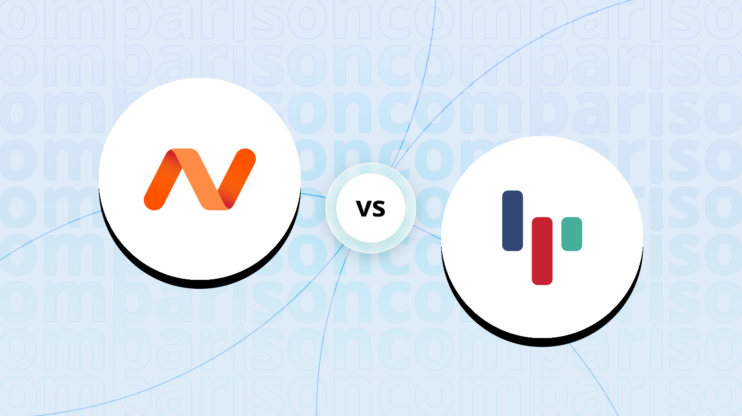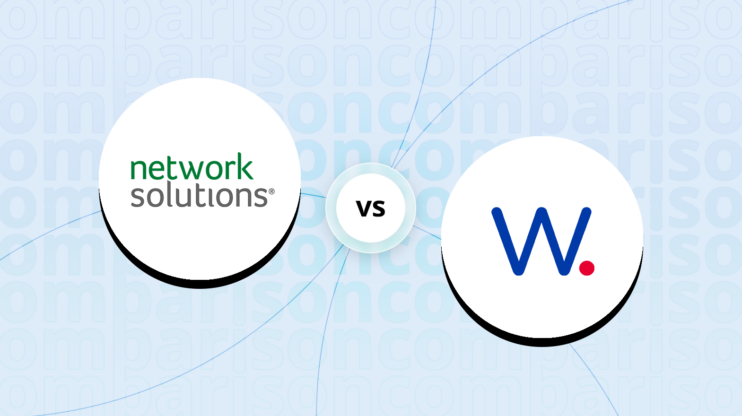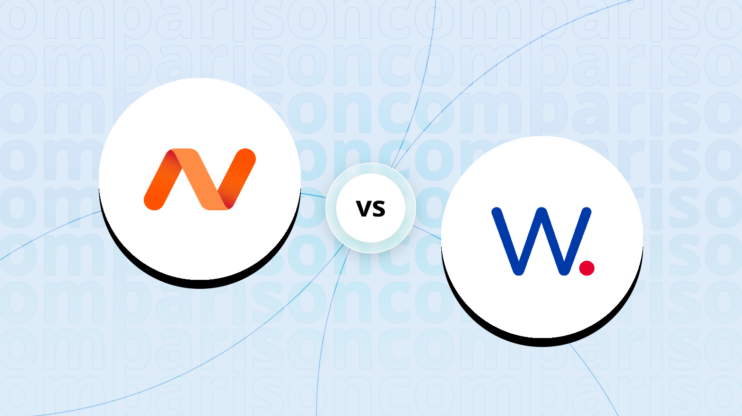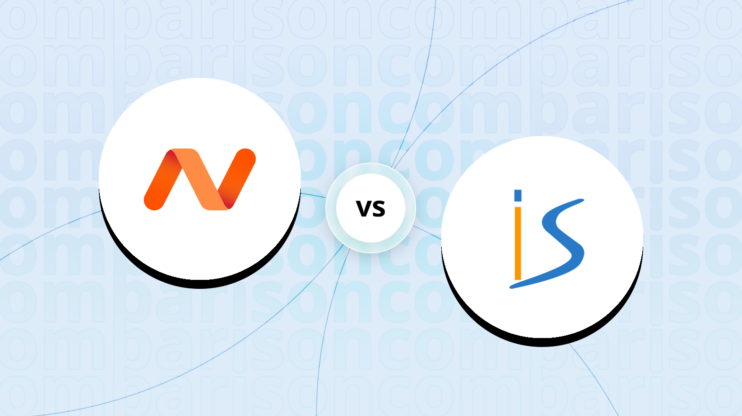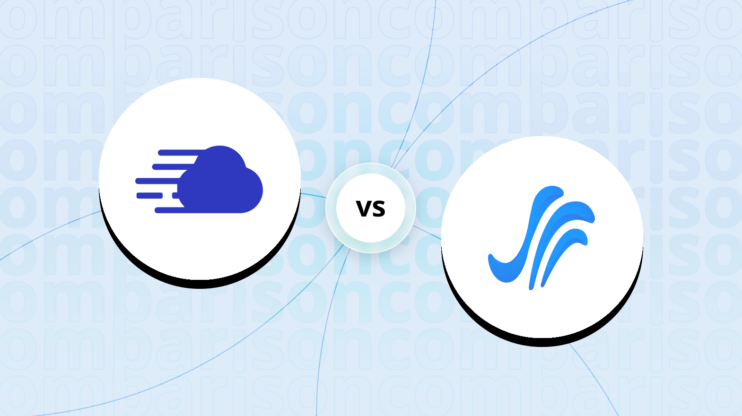Namecheap vs Digital Ocean: Final verdict
Comparing Namecheap vs. DigitalOcean, each hosting provider caters to different user needs with unique strengths and weaknesses.
-
DigitalOcean (Overall grade: 8.3)
is renowned for its high-performance infrastructure, extensive security features, and advanced technical capabilities, making it ideal for developers and businesses requiring scalable and flexible hosting solutions. It boasts a compelling 99.99% uptime SLA, real-time global monitoring, and compliance with multiple certifications like PCI-DSS and ISO/IEC 27001:2013. Although it lacks a dedicated website builder, its Droplets and managed services offer elastic scaling and superior user management features. While arguably more complex for non-technical users, DigitalOcean’s robust global data center presence and customizable hosting options provide excellent value, particularly for high-traffic or enterprise-level projects requiring impeccable uptime and regulatory adherence.
Namecheap (Overall grade: 7.2)
excels in providing user-friendly, affordable hosting options with comprehensive support and extensive features included at no extra cost. It is particularly suited for beginners and small to medium-sized businesses, offering shared, WordPress, and dedicated hosting plans with free SSL certificates and easy site migration. Namecheap guarantees 100% uptime for its shared and dedicated plans, although real-world performance can vary slightly. Known for its 24/7 live chat support and straightforward cPanel interface, Namecheap also includes a website builder, making it accessible for users without technical expertise. While it may not offer the same advanced infrastructure or security as DigitalOcean, Namecheap remains a reliable and cost-effective choice for those prioritizing ease of use and budget-friendliness.
 Overall grade:7.2 |
 Overall grade:8.3 |
|
|---|---|---|
| Uptime and Availability | 8.0 | 9.2 |
| Hosting Performance | 8.2 | 8.8 |
| Hosting Security | 8.5 | 9.1 |
| Price | 8.7 | 8.7 |
| Hosting Features | 7.5 | 6.9 |
| Ease Of Setup | 8.8 | 8.2 |
| User Management | 0.0 | 8.0 |
| Customer Support | 8.0 | 7.8 |
| User feedback | 4.3/5 | 4.6/5 |
Hosting types offered
Both platforms provide a variety of hosting types, each designed to meet the different needs of users.
 |
 |
|
|---|---|---|
| Shared hosting | ||
| Cloud hosting | ||
| WordPress hosting | ||
| Ecommerce hosting | ||
| VPS hosting | ||
| Dedicated hosting |
Although both offer a variety of hosting plans tailored to different needs, in
certain cases, one platform may prove to be more suitable.
Detailed comparison
Uptime and availability
Evaluates the average uptime statistics, uptime guarantee and overall availability of the hosting
provider
Score Components:
- Uptime percentage (30%): evaluates the uptime statistics in given period of time
- Uptime guarantee (20%): Assesses if the platform offers an uptime guarantee and
whether the actual uptime matches the promised guarantee. - General performance (25%): Evaluates how fast is the average response time and overall
it’s stability. - Responsiveness (10%): Adaptability to different devices and screen sizes.
- Availability (25%): Reflects the total downtime and number of outages.
 8.0
8.0
 9.2
9.2
🏆 Winner DigitalOcean: DigitalOcean offers reliable uptime and advanced monitoring tools.

DigitalOcean delivers a compelling 99.99% uptime SLA on services. It offers real-time global monitoring for latency and endpoint status, notifying users of issues promptly. DigitalOcean’s use of multiple data centers worldwide and robust security measures ensure high availability and secure hosting. This makes DigitalOcean a dependable choice for users needing consistent performance and quick response times.
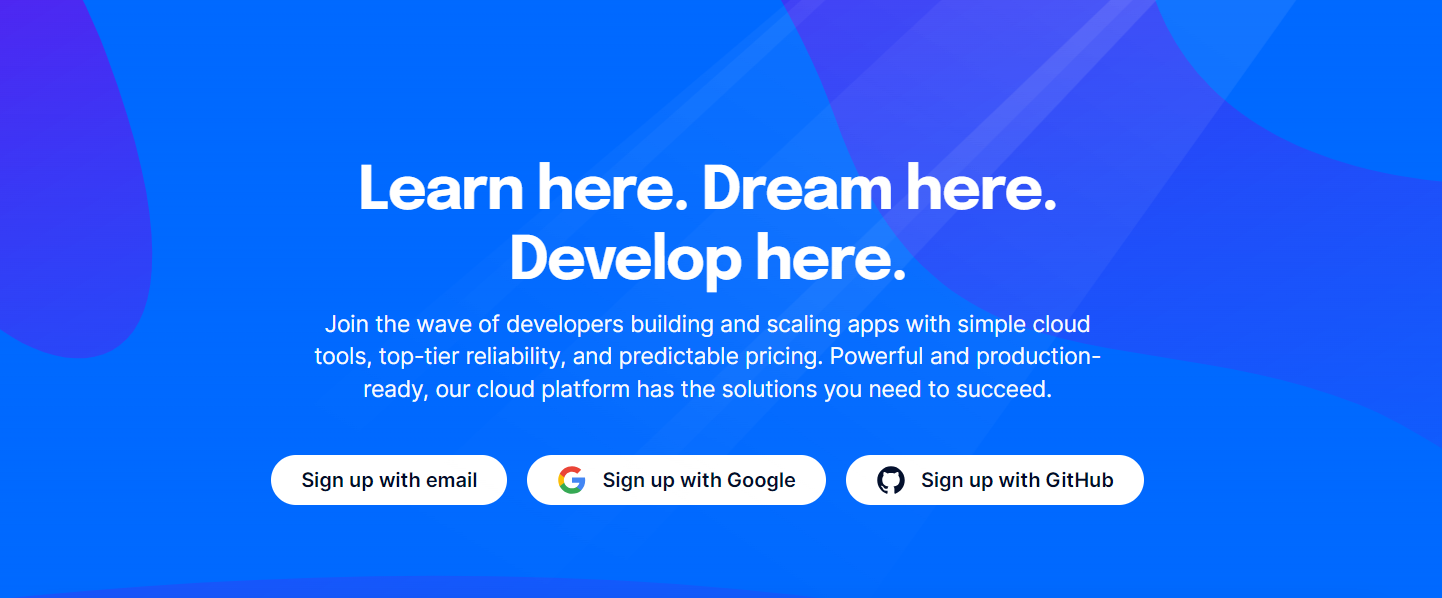
Namecheap provides diverse hosting options with solid uptime guarantees. For shared, business, and dedicated servers, it guarantees 100% uptime; for other plans, like VPS and EasyWP, the guarantee drops slightly to 99.9%. Some tests have even recorded a perfect uptime over two years. However, real-world performance does vary, with a recent test showing 99.82% uptime due to 16 outages totaling 31 minutes.
Which one has better hosting performance?
Score Components:
- Hosting speed (30%): This includes SSD quality, Load times, PageSpeed score ranges,
additional information on website speed, built-in plugins for performance enhancement, available caching
methods, and CPU/RAM options - CDN (20%): Considers whether CDN is available or not, whether it’s free or paid, and
the quality of the CDN service - Available data centers (30%): Evaluates the number of data centers and their locations
globally. - Scalibility (20%): Looks at whether elastic scaling is available, the process required
to scale (manual upgrade vs. automatic scaling), the presence of dedicated servers, and the costs
associated with scaling.
 8.2
8.2
 8.8
8.8
🏆 Winner
DigitalOcean: Outstanding performance and scalability options.
DigitalOcean and Namecheap both provide reliable hosting services, but DigitalOcean edges out with its impressive uptime guarantee and global presence. DigitalOcean guarantees a 99.99% uptime backed by 14 globally distributed data centers, whereas Namecheap offers a 99.9% uptime across fewer locations (US, UK, and EU). Speed-wise, DigitalOcean’s Droplets and automatic backups, combined with its CDN, make it robustly fast. Namecheap also offers superb speed with SSD storage across all plans, but its CDN is only available for specific datacenters. Both offer ample RAM and CPU options; however, DigitalOcean’s customizable Droplets and clear pricing provide a more flexible environment for high-performance hosting.
Website speed
DigitalOcean boasts impressive load times and response speeds, leveraging SSD storage, caching mechanisms, and its own CDN to enhance performance. Websites hosted on DigitalOcean experience quicker loading due to advanced mechanisms such as page and object caching. Namecheap, on the other hand, offers respectable speeds, particularly with its WordPress hosting plans that include a fully loaded time of 0.7 seconds and a Time to First Byte of 192 milliseconds. However, the lack of more sophisticated caching solutions somewhat limits its speed capabilities compared to DigitalOcean.
Scalability
DigitalOcean offers elastic scaling with its Droplets and managed service options, allowing for seamless adjustments based on traffic without manual intervention. Users can easily scale up or down by changing their Droplet configurations, with prices starting at $4 per month. Namecheap requires plan upgrades to scale resources, and it doesn’t mention dedicated servers in the provided information. Consequently, while Namecheap does offer straightforward scalability options within its plans, DigitalOcean’s approach to scaling is more fluid and likely more cost-effective for growing websites and applications.
Which one has better security features?
and regulatory requirements
Score Components:
- Technical security measures (40%): This includes encryption, firewalls, DDoS
protection, secure configurations, server monitoring, access control and availability of security addons
(e.g Sitelock security). - Operational security measures (30%): Encompasses data privacy, backups and data
redundancy. - Compliance and certifications (20%): Adherence to legal and regulatory requirements
(e.g., GDPR, HIPAA) and possession of certifications (e.g., ISO 27001, SOC 2). - Business and reliability (10%): Factors in the provider’s reputation, uptime
guarantees, and customer support.
 8.5
8.5
 9.1
9.1
🏆 Winner
DigitalOcean: Offers extensive security features and compliance certifications.
Both DigitalOcean and Namecheap, have notable differences in their approaches to technical and operational
security, as well as in their compliance with regulations.
Technical security measures:
DigitalOcean provides a more extensive set of technical security measures compared to Namecheap. DigitalOcean includes DDoS protection, cloud firewalls, and data encryption both at rest and in transit. Namecheap also offers a wide array of security features, such as 2FA, SPF, and PGP/GPG for email security. However, DigitalOcean’s inclusion of features like the web application firewall (WAF) and virtual private cloud (VPC) gives it an edge in technical security.
Operational security measures:
Both hosting providers offer robust operational security measures, including SSH access for secure remote management and 2FA for account protection. DigitalOcean provides automatic backups and snapshots, while Namecheap includes Jellyfish Spam Protection and BoxTrapper for email security. Additionally, DigitalOcean’s cloud firewalls offer an extra layer of protection, setting it ahead.
Compliance and certifications:
DigitalOcean excels in compliance with multiple certifications, including PCI-DSS, SOC 2 Type II, SOC 3 Type II, ISO/IEC 27001:2013, and CSA STAR Level 1. Namecheap ensures GDPR compliance but does not specify other certifications. DigitalOcean’s extensive compliance credentials make it suitable for businesses needing robust regulatory adherence.
 |
 |
|
|---|---|---|
| SSL certificate | Multiple types | Available |
| Additional security features | Extensive | Extensive |
| PHP versions | 5.X to 8.X | Various |
| GDPR compliance | Yes | Yes |
| HIPAA compliance | Not specified | Not specified |
| PCI compliance | Not specified | Yes, PCI-DSS certified |
Hosting features
Score Components:
- Domains (20%): Assesses the availability of a free domain, domain purchase options, and
pricing - Email (15%): Considers if the provider offers full email hosting, or is reselling
third-party service, and if the email is only transactional or not - Website builder (15%): Checks if website builder is available, and it’s user
friendliness and overall the level of customization allowed. - Staging environment (20%): Determines if a staging environment is available, allowing
for testing changes before going live. - FTP & SFTP accounts (10%): Evaluates if and how easily users can access FTP and
SFTP accounts - Git and SSH access (20%): Assess whether Git is integrated into the hosting service and
if SSH access is provided
 7.5
7.5
 6.9
6.9
🏆 Winner: Namecheap: An affordable and feature-rich hosting provider with extensive support.
Namecheap and DigitalOcean both offer a variety of hosting features, catering to different user needs. Namecheap provides an easy-to-use website builder, making it an excellent choice for users who might not have extensive technical skills but still want the flexibility of customization. This service includes a robust selection of hosting plans, from shared to WordPress hosting, all at competitive prices. Namecheap also includes free services such as SSL certificates for the first year, which can be a significant cost saver. On the other hand, DigitalOcean is better known for its high-performance infrastructure and offers a broader range of hosting types, including managed Kubernetes and managed databases. This makes it very attractive to developers and businesses requiring advanced capabilities. However, it lacks a dedicated website builder, which might deter users seeking a more straightforward building process.
Namecheap stands out with its additional perks like a 30-day money-back guarantee and 24/7 live support. It also offers personalized email services with various security features like Jellyfish Spam Protection. This could be a compelling reason for small to medium-sized businesses looking for an all-in-one solution. DigitalOcean provides strong security features and a high degree of control through SSH access, making it ideal for tech-savvy users and enterprises needing robust infrastructure. Their services include highly reliable uptime and automatic backups, which are essential for maintaining seamless operations. Nonetheless, DigitalOcean’s feature-rich environment may come with a steeper learning curve and potentially higher costs depending on the user’s needs.
 |
 |
|
|---|---|---|
Free domain |
No |
No |
Free SSL |
Yes, for the first year |
Yes |
Email hosting |
Yes |
Yes |
Website builder |
Yes |
No |
Staging environment |
No |
Yes |
FTP & SFTP accounts |
Yes |
Yes |
Git and SSH access |
Yes |
Yes |
Free backup |
Yes |
Yes |
Money-back guarantee |
Yes, for 30 days |
No |
a location.
As a result in rare cases the features mentioned here can differ from the ones you see on their websites.
Email services:
Namecheap offers extensive email hosting services with features like unlimited mailboxes on higher-tier plans and tools such as SpamAssassin and Jellyfish Spam Protection. Users can manage mailing lists, autoresponders, and various webmail options. DigitalOcean, while strong in hosting infrastructure like secure servers and spam protection, does not provide the same level of integrated email hosting features. Instead, users often have to rely on third-party services or additional configurations for comprehensive email functionalities.
Price
Score Components:
- Plan value (40%): What each pricing tier offers.
- Transparency and clarity (30%): Clearness of pricing structures.
- Flexibility of plans (20%): Range of options to suit different budgets.
- Hidden costs (10%): Additional expenses not included in the plan.
 8.7
8.7
 8.7
8.7
🏆 Winner Namecheap: Known for affordability and feature-rich plans, Namecheap offers a variety of hosting options suitable for any budget.
Evaluating the pricing of plans among various hosting providers can be complex due to their differing pricing and renewal strategies. Additionally, certain plans require annual commitments, which adds to the difficulty of making comparisons. The prices listed are based on monthly commitments; plans requiring annual commitments are indicated. Additionally, although some providers offer identical plans for WordPress and shared hosting, we have created separate tables for each to enhance clarity.
Both Namecheap and DigitalOcean provide a wide range of hosting solutions, but they cater to different needs and budgets. Namecheap’s shared hosting plans start at a remarkably low $4.48/month for renewal, with features like free SSL certificates, domain names, and website builders. In comparison, DigitalOcean starts at $4/month for their Basic Droplet and $5/month for their App Platform Basic plan, but with options for higher scalability, such as VPS and memory-optimized droplets starting at $7/month. Namecheap’s dedicated server plans offer more configurability and start at a lower price point than DigitalOcean’s, which begins at $42/month for dedicated CPU droplets. Overall, Namecheap provides more budget-friendly options with a multitude of features included at no extra cost, while DigitalOcean caters to users seeking scalable and high-performance infrastructure.
 |
 |
|---|---|
|
EasyWP Starter $6.88
1 website, 10 GB SSD, 50k visitors/month, Free CDN, Free SSL, Easy backups/restores Value for price:8.0
|
Basic Droplet $4
1 website, unspecified SSD, unrestricted visitors, Free SSL, Automatic backups, DDoS Protection Value for price:7.5
|
|
EasyWP Turbo $12.88
1 website, 50 GB SSD, 200k visitors/month, 1.5x CPU/RAM, Free CDN, Free SSL, Easy backups/restores Value for price:8.5
|
N/A
Value for price:N/A
|
|
EasyWP Supersonic $19.88
1 website, 100 GB SSD, 500k visitors/month, 2x CPU/RAM, Free CDN, Free SSL, Easy backups/restores Value for price:9.0
|
Cloudways $100 credits
Multiple websites, managed infrastructure, unlimited plugins, no visitor cap Value for price:8.0
|
 |
 |
|---|---|
|
Stellar $4.48
3 websites, 20 GB SSD, Free domain, Free SSL, 30 mailboxes, Website builder, Free CDN Value for price:8.5
|
Website Hosting $4
Multiple websites, unspecified SSD, 1-click apps, 99.99% uptime SLA Value for price:8.0
|
|
Stellar Plus $6.48
Unlimited websites, Unmetered SSD, Free domain, Free SSL, Unlimited mailboxes, AutoBackup, Website builder, Free CDN Value for price:8.7
|
App Platform Basic $5
Multiple websites, unspecified SSD, scalable configurations Value for price:7.5
|
|
Stellar Business $9.48
Unlimited websites, 50 GB SSD, Free domain, Free SSL, Unlimited mailboxes, AutoBackup with Cloud Storage, Website builder, Free CDN Value for price:8.9
|
N/A
Value for price:N/A
|
 |
 |
|---|---|
|
Basic Dedicated Server $44.88
Full root access, customizable configurations, 24/7 support, 7-day money-back guarantee Value for price:8.0
|
Regular Shared CPU Droplet $4
Enhanced performance, shared CPU, basic managed support Value for price:8.0
|
|
N/A
Value for price:N/A
|
Premium Shared CPU Droplet $7
Enhanced memory, NVMe SSDs Value for price:8.3
|
|
N/A
Value for price:N/A
|
Dedicated CPU Droplet $42
4GB memory, 25GB SSD, 4TB transfer Value for price:8.5
|
|
N/A
Value for price:N/A
|
Memory-Optimized Droplet $84
16GB memory, 2vCPUs Value for price:8.2
|
|
N/A
Value for price:N/A
|
Storage-Optimized Droplet $131
16GB memory, 300GB SSD Value for price:8.4
|
Enterprise plans
For enterprise hosting needs, Namecheap offers customizable dedicated server plans with full root access, multiple OS options, and reliable support starting at $44.88/month. DigitalOcean’s enterprise solutions include VPS and dedicated CPU droplets, starting at $42/month, with options for memory and storage optimization. Namecheap’s plans are more affordable with a range of inclusions like free domains and SSL certificates, while DigitalOcean provides higher scalability and advanced infrastructure for demanding business applications.
Namecheap vs Digital Ocean: Ease of setup
platform.
Score Components:
- Site migration (25%): Assesses whether the provider offers tools for site migration,
either automated or manual, and whether these services are free or require a fee. - Admin panel usability (35%): Evaluates the type of admin panel provided, such as the
standard cPanel or a custom solution, focusing on its accessibility and user-friendliness for both
technical and non-technical users. - Setup features (20%): Examines the availability and ease of use of various setup
features, including FTP accounts, file managers, email account setup, PHPMyAdmin, and easy CDN
configuration. - Help center quality (20%): Measures the quality and accessibility of the provider’s
help center resources, including articles and tutorials.
 8.8
8.8
 8.2
8.2
🏆 Winner Namecheap: Namecheap excels in providing a user-friendly hosting experience with comprehensive support and straightforward migration services.
Namecheap employs two different admin panels based on the type of hosting. For standard web hosting, it uses cPanel, accessible through a welcome email with login details. This is highly user-friendly and especially suitable for those familiar with conventional control panels. EasyWP hosting, on the other hand, provides a customized, single dashboard that gathers all necessary tools for site management in one place. This makes it straightforward for non-technical users to perform various tasks like connecting domain names and managing backups without the complexities of cPanel. Overall, Namecheap is geared towards ease of use for both tech-savvy users and beginners.
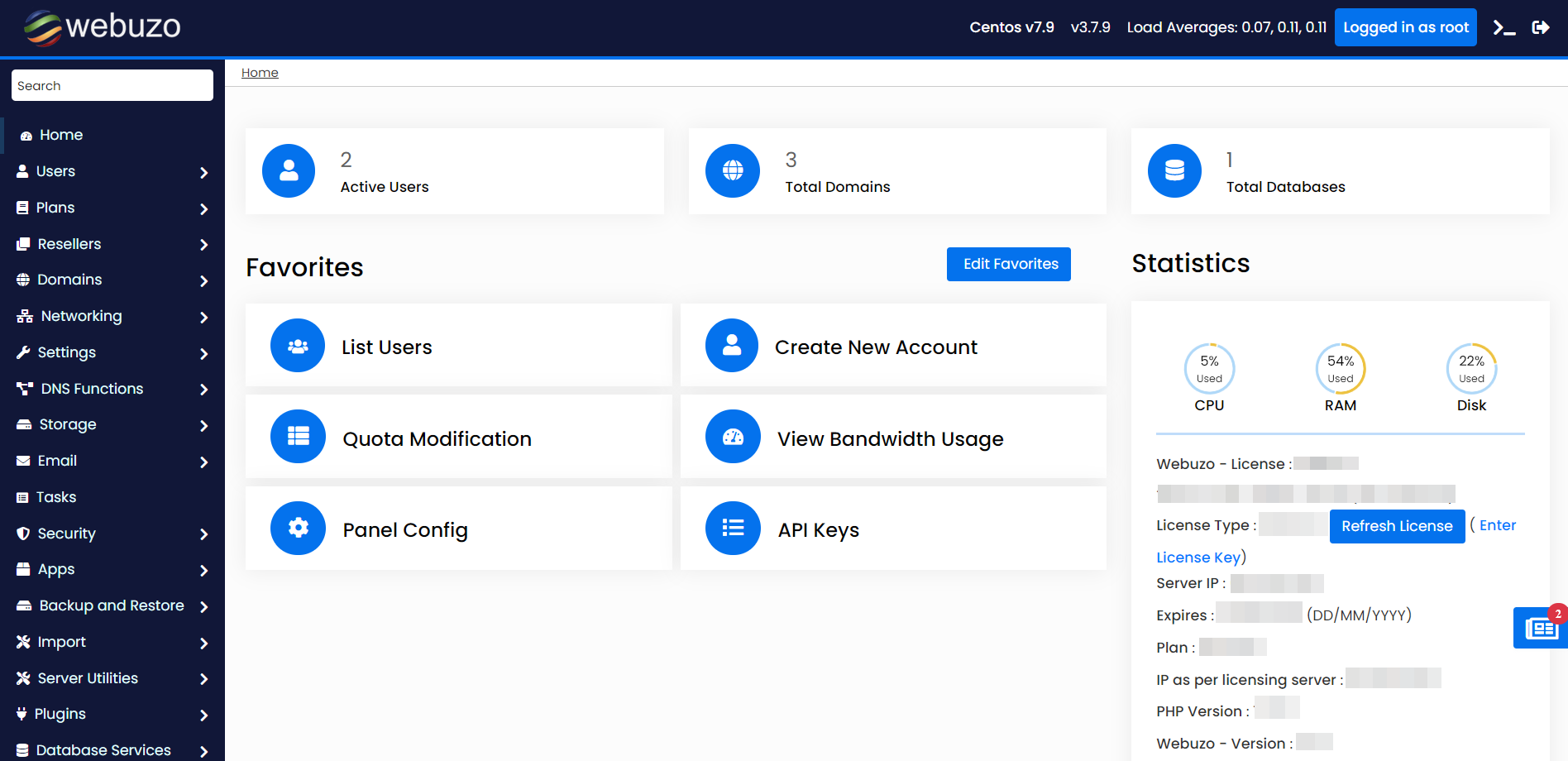
DigitalOcean offers a variety of control options, but unlike Namecheap, it does not follow the traditional route of cPanel. Its offerings include the Droplets, which are flexible virtual machines, and the App Platform, which is a fully managed Platform as a Service (PaaS). For those who need a more managed experience, Cloudways provides a managed hosting interface with easy-to-use tools. DigitalOcean’s admin panel is accessible but might require a steeper learning curve for non-technical users. However, its 1-Click Apps simplify the setup for commonly used CMSs and developer tools, making it somewhat easier to get started.
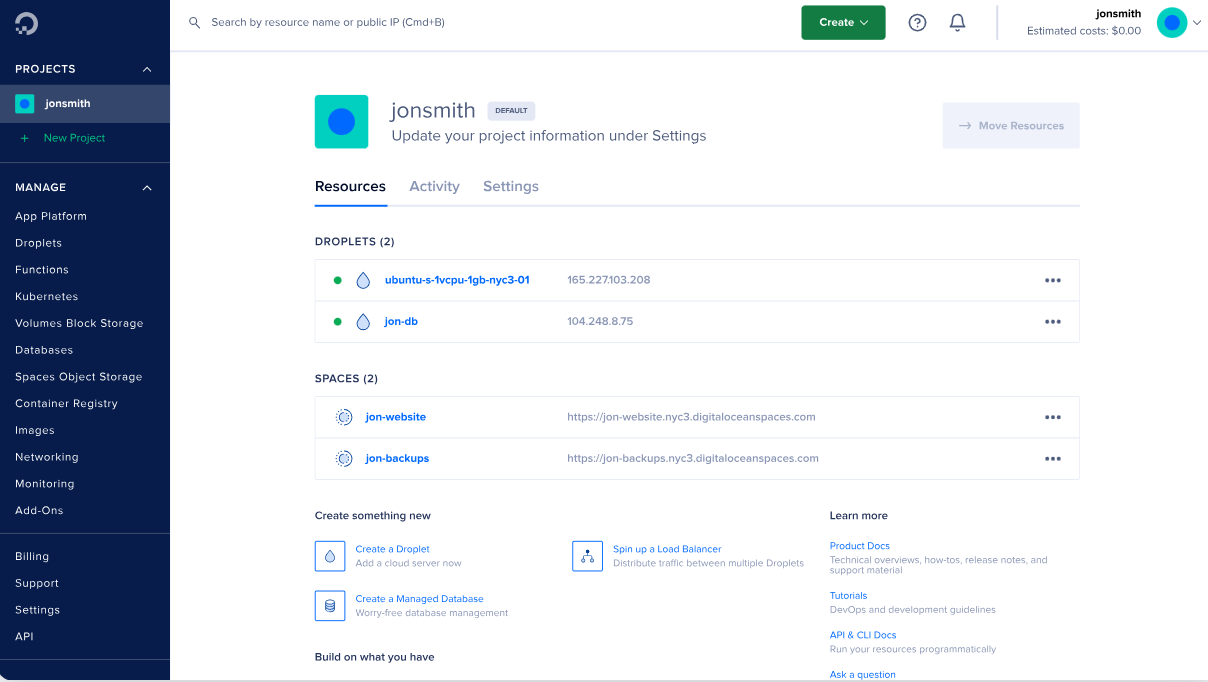
Namecheap offers a free migration service applicable from any web host, including major providers like GoDaddy and Bluehost. The migration utilizes the All-in-One WP Migration plugin, making it straightforward and cost-free. DigitalOcean does not advertise a specific free migration service but provides extensive documentation and community support to guide users through a manual migration process. This might be a hurdle for non-technical users compared to Namecheap’s more streamlined and free solution.
The help centers of both hosting providers are robust and easily accessible. Namecheap provides 24/7 live chat, a support ticket system, and a comprehensive knowledge base that covers setup guides, troubleshooting, and FAQs. DigitalOcean also offers extensive documentation and tutorials, along with a community support feature where users can get advice from expert developers. Additionally, Cloudways provides round-the-clock support and various resources. The accessibility and quality of resources from both providers ensure users have the necessary tools to resolve issues and maintain their websites efficiently.
User management
accessibility.
Score Components:
- Role customization (40%): Flexibility in creating and defining user roles and
permissions. - Ease of management (30%): User interface and tools for managing users.
- Access control (20%): Effectiveness of access control measures for different user
levels. - Scalability (10%): Ability to manage a growing number of users efficiently.
 0.0
0.0
 8.0
8.0
🏆 Winner DigitalOcean: Superior user management capabilities with comprehensive roles and access control.
When comparing Namecheap and DigitalOcean in the realm of user management, DigitalOcean offers a more structured and flexible approach. DigitalOcean’s clear definition of user roles—Owner, Biller, and Member—allows for a granular control over permissions and accessibility. Conversely, Namecheap lacks detailed information on user role capabilities, making it harder to assess its effectiveness in this area. Therefore, DigitalOcean stands out as the more reliable option for managing user roles comprehensively, providing a well-defined hierarchy and varied access levels to suit different needs within a team.
DigitalOcean’s user management interface is intuitive and user-friendly. The “Invite Members” feature is straightforward, requiring just a few clicks to add new members to a team. Additionally, team owners have the ability to view the sign-in methods for each member, adding a layer of security. The membership table, viewable by all users, ensures transparency in team composition and roles. In contrast, Namecheap’s user interface lacks specific details, making it difficult to evaluate its ease of use and functionality.
In terms of access control, DigitalOcean excels with its multiple user roles and the ability to manage an unlimited number of members effectively. The various roles ensure that only the necessary permissions are granted to users, maintaining security and operational efficiency. The platform’s ability to handle an expanding team without compromising on control or performance is another strong advantage. With Namecheap not providing detailed information, it is hard to judge its scalability and efficacy in managing large teams.
DigitalOcean user roles table:
| Role | Description | Access highlights |
|---|---|---|
| Owner | Full access to resources, billing, and settings. | Can invite, manage, and remove team members. Access to all billing and team settings. |
| Biller | Full access to billing information only. | Can view and manage billing details but cannot access shared resources or team settings. |
| Member | Full access to shared resources. | Can access all shared resources but cannot view billing information or modify team settings. |
Customer support
hosting provider.
Score Components:
- Support communication channels (30%): Measures the variety of customer support types
provided (live chat, chatbot, email, phone, etc.) - Availability (20%): Assesses the availability hours for each channel, including 24/7
support options. - Technical support quality (30%): Assesses whether the provider offers comprehensive
technical support, including hardware upgrades (e.g., HDD to SSD), software installations, and web
server configuration changes. - Enterprise support (20%): Checks if there are dedicated or priority support services
for enterprise-level customers.
 8.0
8.0
 7.8
7.8
🏆 Winner Namecheap: Offers extensive resources, 24/7 support, and free migration assistance, making it a user-friendly choice for customers.
 |
 |
|
|---|---|---|
Phone support |
||
Live chat support |
* |
|
Chatbot |
||
Email/ticket support |
||
Enterprise support (dedicated agent, priority support) |
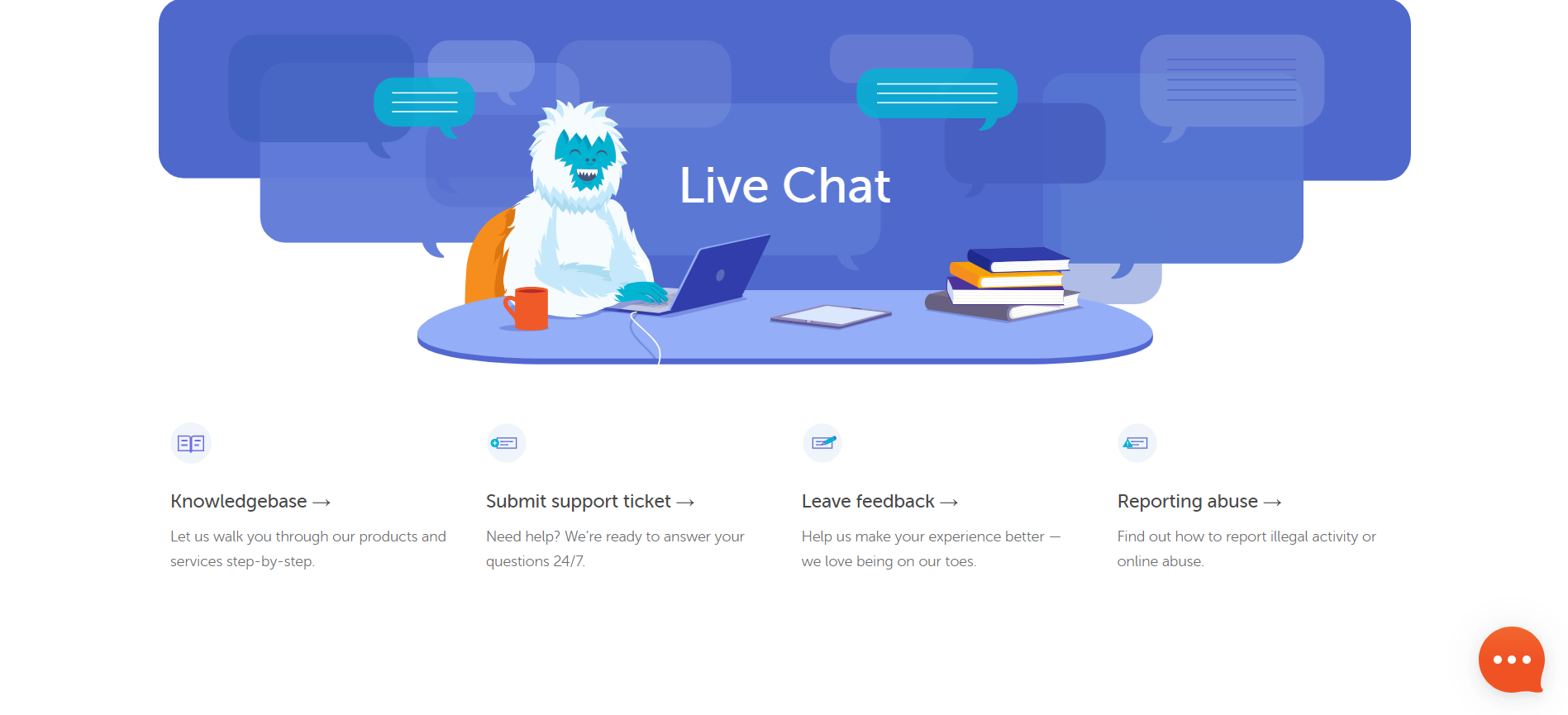
Namecheap and DigitalOcean offer various customer support channels, although Namecheap stands out with its 24/7 live chat and vast Knowledge Base. Namecheap’s Live Chat provides real-time solutions, complemented by a comprehensive support portal featuring detailed articles, how-to videos, and Guru Guides. Though it lacks phone support, its customer service is praised for being friendly and professional.
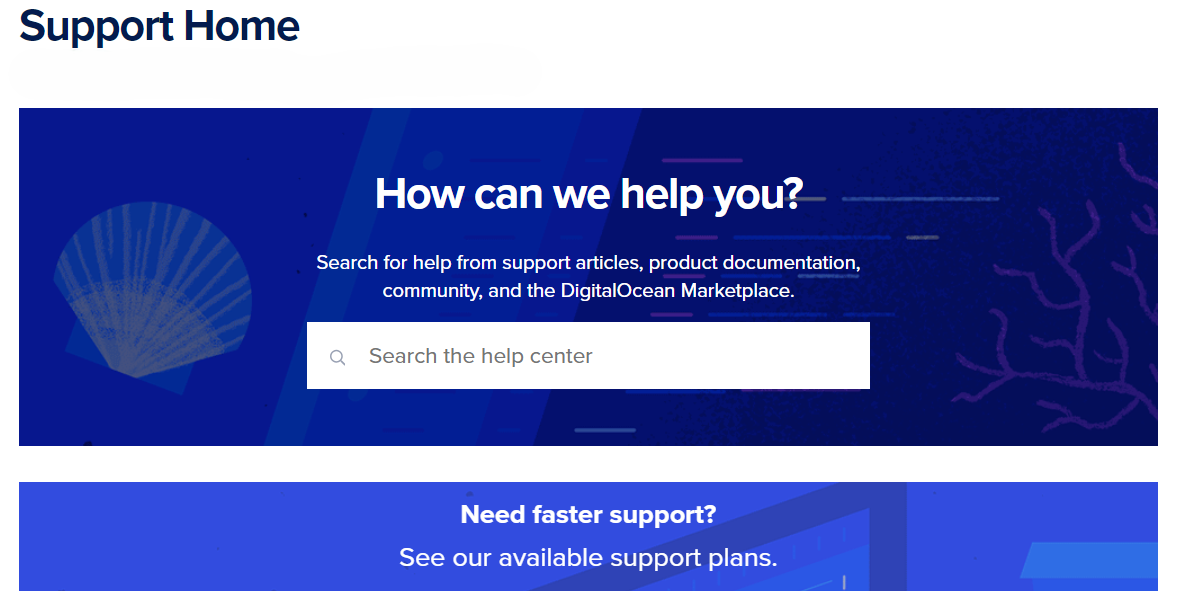
DigitalOcean, on the other hand, provides 24/7 email and ticket support, with premium live chat options. The platform boasts a strong community forum and extensive documentation on various topics. While DigitalOcean has an intuitive control panel and a reliable support system, some users have reported difficulties in contacting support for refunds and cancellations. Despite these differences, both hosting providers cover essential support needs effectively, but Namecheap edges out with its higher customer satisfaction and more accessible support options.
Namecheap vs Digital Ocean: User feedback
Namecheap is widely appreciated for its affordability, reliability, and high-quality customer support. Users commend the availability of free SSL certificates, user-friendly cPanel, and outstanding hosting speed. However, shared hosting speed and the occasional slow response from support are noted concerns. Despite these minor drawbacks, Namecheap remains a popular choice for beginners and small to medium businesses due to its competitive pricing and satisfactory service quality.
DigitalOcean consistently garners praise for its simplicity, user-friendly interface, and transparent pricing, making it ideal for both beginners and experienced developers. Users appreciate the straightforward setup, reliable performance, and excellent customer support, highlighting features like one-click deployment and robust documentation. However, there are some minor criticisms, including a limited variety of server configurations compared to larger providers and occasional slow customer support response times. Despite these drawbacks, DigitalOcean is highly regarded for its cost-effectiveness, ease of use, and overall reliability, particularly for small to medium-sized businesses and startups.
Namecheap vs Digital Ocean: FAQ
Which platform is better suited for hosting WordPress websites?
Namecheap offers specialized WordPress plans with easy setup and maintenance tools, making it a more user-friendly option for hosting WordPress websites. DigitalOcean, while also providing WordPress hosting, requires more technical know-how due to its advanced infrastructure. Thus, Namecheap is better suited for those seeking a straightforward WordPress hosting experience without the need for extensive technical skills.
Which platform offers better customer support?
Namecheap excels in customer support with 24/7 live chat, a comprehensive knowledge base, and free migration services, making it highly accessible for users of all technical levels. DigitalOcean offers 24/7 email and ticket support, with live chat available as a premium feature, and has extensive documentation and community support. However, Namecheap’s higher customer satisfaction and more accessible support options make it the better choice in this category.
Which hosting service offers more scalability options for growing websites?
DigitalOcean offers more extensive scalability options with its Droplets and managed service options, allowing users to seamlessly adjust based on traffic without manual intervention. Namecheap also provides scalability within its plans but involves plan upgrades to scale resources. DigitalOcean’s approach to scaling is more fluid, cost-effective, and suitable for growing websites and applications.
What are the major differences in pricing and value between namecheap and digitalocean?
Namecheap offers more budget-friendly hosting plans starting at $4.48/month for shared hosting, including features like free SSL certificates and website builders, making it a cost-effective choice. DigitalOcean starts at $4/month for basic Droplets, with higher scalability options available. Namecheap provides more features at no extra cost, while DigitalOcean caters to users needing higher performance and scalability, albeit at a potentially higher cost.
Are both platforms suitable for beginners?
Namecheap is particularly well-suited for beginners, offering user-friendly interfaces like cPanel, a straightforward website builder, and 24/7 live chat support to assist with any issues. DigitalOcean, while providing ample documentation and one-click app installations, generally requires a higher technical skill level, making it less suitable for beginners compared to Namecheap.
The making of this blog
We followed a clear, step-by-step process to write and research this article.









